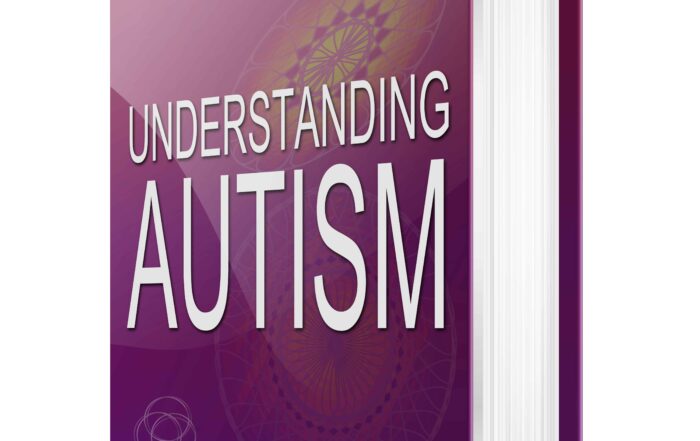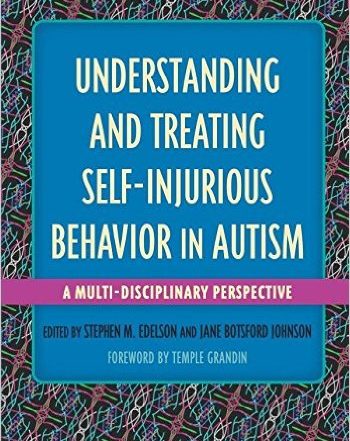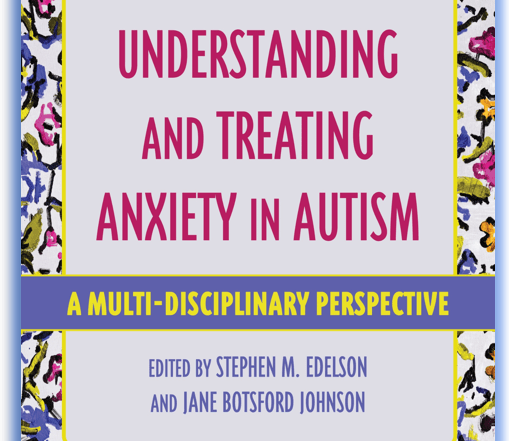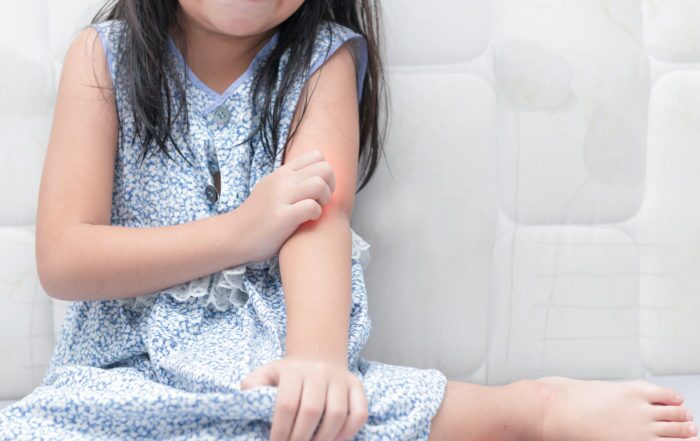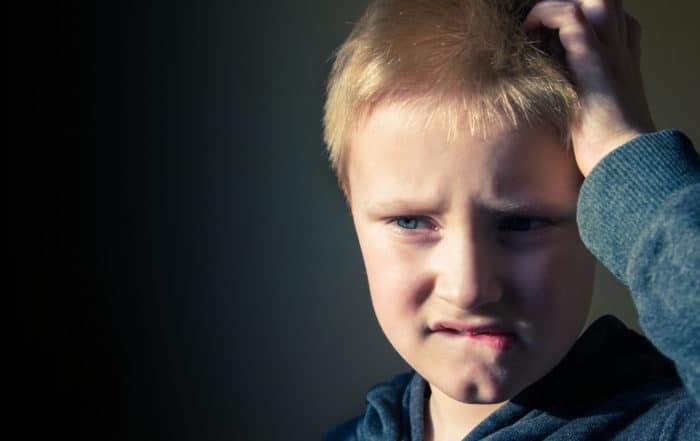
Dean Alexander, Ph.D., discusses pica, the ingestion of non-food substances, which has received insufficient attention as a common, sometimes lethal, form of self-injurious behavior. He discusses the prevalence of pica in autistic individuals and the long-term health implications associated with pica behavior. The speaker details numerous case studies and highlights the need for multidisciplinary collaborative treatment strategies based on functional behavior assessments. Alexander describes available treatment strategies and presents the SMART acronym for treatment recommendations. e.
Handouts are available for download (PDF) HERE
Take the knowledge quiz for this presentation HERE
This is a joint presentation by ARI and the World Autism Organisation.
In this webinar:
2:12 – What is pica
5:22 – Study: Soda can and rubber ball
8:00 – Challenges with behavioral treatments
13:00 – Sensory stimulation and pica
14:20 – Pica prevalence and impact
16:08 – Study: GI symptoms and pica
17:30 – Study: Autism, GI symptoms, and pica
19:00 – Study: Pica prevalence in autistic adults
25:25 – Pica as a phenotypic subgroup
26:30 – Studies: polyvisol, vivinex, iron supplements, zinc and antioxidant therapy
29:46 – Metabolic profiles and phenotypic subgroups
31:57 – Why nutritional interventions
34:04 – Comprehensive vitamin-mineral interventions
36:10 – Dietary changes
38:21 – Study: Homeopathic treatment
44:28 – SMART interventions
Pica and behavioral treatments
Pica is the ingestion of inedible substances and is the most dangerous form of self-injurious behavior associated with autism (2:12). Items frequently ingested include generally harmless things like dirt, leaves, and grass, as well as dangerous and potentially lethal items like rubber gloves, clothing tags, and screws (3:30). Alexander details a case study involving a 50-year-old autistic man who ingested cigarette butts. The presenter explains how treatment strategies capitalized on the individual’s preferences by incorporating soda cans and a red rubber ball into his walk to work. Over six months, the client’s nicotine and cotinine levels decreased from those of a chain smoker to zero (5:22). Alexander highlights the simplicity of this case, noting the trial and error implicit in creating holistic treatment strategies (6:43).
Establishing effective behavioral treatments for pica can be challenging due to costs, availability, environmental restrictions, and the generality of treatments across time (8:00). The presenter notes the importance of functional behavioral assessments, which help identify the factors that drive and maintain pica behavior, like attention-seeking, sensory issues, pain attenuation, or escape/avoidance (11:00). Sensory stimulation, he continues, is often a significant factor in maintaining pica behavior and can be challenging to address. Solutions to sensory drivers can include finding substitute foods with similar sensory properties (i.e., grape nuts in place of dirt) or engaging individuals with play during unstructured hours (13:00). The presenter notes that pain attenuation is often related to dental issues (14:01).
Pica Prevalence and Impact
Around 23.2% of autistic children and up to 60% of autistic adults experience pica (14:20). The speaker outlines two studies on the intersection of autism, pica, and GI issues in children (16:08). Researchers found that autistic children and children with developmental disorders who also have pica have a higher prevalence of GI signs, symptoms, and diseases compared to those without pica (15:24). Prevalence of food cravings and specific GI conditions like irritable bowel syndrome (IBS) and gastroesophageal reflux (GERD) are also higher in autistic children with pica than those without (17:30). To assess the prevalence and co-occurring conditions in adults, researchers examined ten years of medical records compared to a comprehensive list of symptoms and diseases (19:00). Four groups were assessed: autism only, autism and pica, pica without autism, and a control group of developmentally disabled individuals without pica. Findings revealed that the prevalence rates across the ten most frequently occurring diseases were two to three times higher for individuals with pica, where the autism and pica group had the highest rate (22:33). Alexander emphasizes that pica takes a severe toll on the body over time which can lead to shorter life expectancy and higher mortality rates. He asserts that autistic individuals with pica may represent a phenotypic subgroup characterized by GI symptoms and requiring specialized treatments (25:25).
Intervention Options
Alexander outlines research showing that autistic children have relatively less diversity in gut bacteria and generally have fewer healthy bacteria than unhealthy (30:55). These findings emphasize the importance of including nutritional interventions in treating pica. The speaker underscores that dietary interventions do not necessarily rely upon practitioner availability and so may be more accessible (27:36). He details promising research using iron supplements, liquid multivitamins (poly-vi-sol), specialized formulations (vivinex) (26:30), and zinc supplements and antioxidant therapy (28:42) to reduce pica behaviors like coprophagy (ingestion of feces) in autistic individuals. The presenter discusses a study that revealed significant differences in metabolic profiles between autistic children and their non-autistic peers (29:46). Targeted nutritional therapies, including folinic acid, betaine, and methyl B12, succeeded in correcting metabolic imbalances. Alexander asserts these findings suggest the presence of a metabolic phenotype and that aspects of autism are treatable.
Maintaining a healthy gut is critical for the body’s ability to fight infection, digest food and produce vitamins (31:57). The presenter outlines other nutritional treatment approaches, including gluten-free, casein-free, and Mediterranean diets (37:17), as well as comprehensive vitamin-mineral interventions (34:04). Alexander details a case study where a seven-year-olds pica behaviors stopped just one week after implementing a gluten/casein free diet (36:10). The speaker summarizes the behavioral, dietary, and vitamin/mineral based interventions and highlights the need to try and assess each strategy. He outlines a homeopathic treatment study that showed remarkable improvements in a 15-year-old boy with severe autism. Supplemental behavioral interventions alongside homeopathic recommendations significantly improved the child’s functions, behavior, communication, and quality of life (38:21).
S.M.A.R.T. Interventions
Alexander highlights the need for collaborative treatment strategies and introduces the SMART acronym for treatment recommendations (44:28):
Safety: Safety precautions are critical. Potential dangers and treatment environments must be appropriately assessed based on individual needs.
Medical issues related to eating habits, food cravings, stomach pain, antibiotic use, and mouth sensitivities must be addressed. It is best to be assessed by a team of professionals including, but not limited to, a dentist, GI specialists, and nutritionist (45:33).
Analysis/assessments of behavior function and consequences are best practices. Such assessments are critical for accurately identifying drivers and potential treatments for pica behavior (47:40).
Reinforcement inventory or a “menu” of activities or objects that help minimize Pica behavior (e.g., soda cans and rubber balls). These can aid in implementing differential reinforcement strategies and finding alternatives.
Treatment packages or a combination of various approaches to create a collaborative treatment strategy. Treatment packages include psychotherapy, pharmacological treatments, behavioral techniques, and nutritional support. Such holistic therapies are generally the most effective (49:44).
Dean Alexander, Ph.D., discusses pica, the ingestion of non-food substances, which has received insufficient attention as a common, sometimes lethal, form of self-injurious behavior. Behavioral approaches to treatment, more often than not, fall short. Biological intervention, if supported, may hold out new promise.
Handouts are available for download (PDF) HERE
This is a joint presentation by ARI and the World Autism Organisation.
 About the speaker:
About the speaker:
Dr. Dean Alexander has worked at centers for children with physical handicaps and emotional disturbances and adults with developmental disabilities (Lanterman Developmental Center) before entering Claremont Graduate University, Claremont, CA. At CGU, Dr. Alexander teamed up with Dr. Laura Schreibman, then worked on Dr. Ivar Lovaas’s landmark Young Autism Project; this led to a case study and a co-authorship of Dr. Lovaas’s first two books. Returning to LDC as a psychologist, he co-authored the first behavioral treatment of pica while gaining familiarity with nutritional and vitamin-driven approaches through literature and conferences presented by the Autism Research Institute.
Take the knowledge quiz
Can’t see the quiz below? Take it online HERE
Understanding and Treating Autism: Book Series
A new book, titled Understanding and Treating Sleep Disturbances in Autism, is now available from Jessica Kingsley Publishers. The book is edited by ARI's executive director, Stephen M. Edelson, and past ARI
Understanding and Treating Self-Injurious Behavior in Autism
Pictured: Editors Stephen M. Edelson and Jane Botsford Johnson A comprehensive, authoritative resource on understanding and resolving self-injurious behavior (SIB) in people with autism and related conditions with contributions by top
Understanding and Treating Anxiety in Autism
Pictured: Editors Stephen M. Edelson and Jane Botsford Johnson Understanding and Treating Anxiety in Autism, is now available from Jessica Kingsley Publishers. The book is edited by ARI's executive director, Stephen M.
Causes and Interventions for Self-Injury in Autism
Strictly speaking, self-injury is not a symptom of autism. However, certain symptoms, situations, and comorbidities related to ASD can lead some people with autism to engage in self-injurious behavior. Treating underlying disorders
Self-Injurious Behavior – Anxiety and OCD
Watch Dr. Moskowitz’s previous talk on positive strategies for addressing anxiety and OCD, HERE References in the playback above include: Three methods of saying "no" without escalating: HERE Treatment when

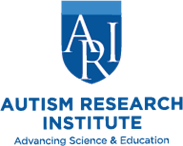
 About the speaker:
About the speaker: